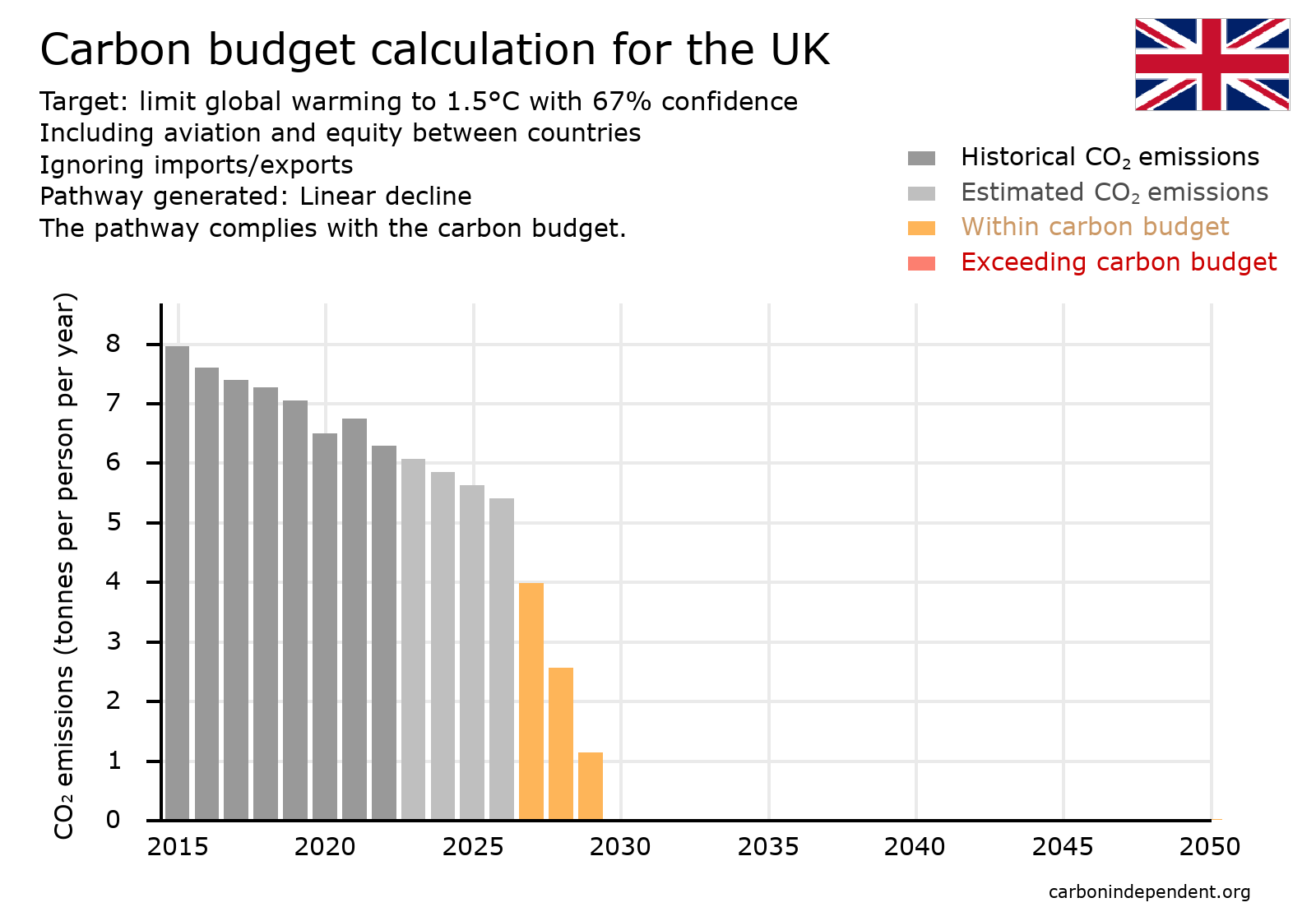
The Failure of the CAN Bill (the Climate and Nature Bill)
For more details via infoboxes: hover, click or double-click on any highlighted text
If policies are based on facts and fairness, then it has to be concluded that the CAN Bill (the Climate and Nature Bill) has been fatally flawed from the start and has not deserved the support that it has received.
This is on the basis of the following points.
1. The UK Parliament declared a Climate Emergency in 2019, spearheaded by Ed Miliband.
2. This was for good reasons that continue to be valid today, even more so.
3. An emergency means
a situation that requires immediate action
, and Ed Miliband advocated "in the first five years of a Labour government an absolute wartime mobilisation"
, and praised a net zero date of 2030
.4. Many UK local authorities also declared Climate Emergencies
5. The IPCC explained that
"rapid and far-reaching transitions"
were needed, and the Tyndall Climate Centre provided reports for each UK local authority
showing that the fair carbon budget
for keeping global warming within 1.5°C would run out typically in 2027, requiring emission cuts of around 15% per year.6. The climate movement should then have discussed and agreed an effective strategy that would achieve these 15% annual cuts. This should have been communicated to decision makers and the general population, so that there could be an honest debate about the speed and scale of changes needed e.g. that most airports would close within a year or two.
7. This did not happen.
8. Instead, a plethora of climate groups have promoted a wide range of inadequate measures with inadequate timescales, with little discussion between groups, and little attempt to ensure that the measures comply with the science.
9. The CAN Bill (relaunched last year), despite many good points, is one such inadequate measure, fatally flawed firstly by pretending that there is no need for emergency action - that there is so little urgency that action can be deferred for two years until the Bill has made its way through Parliament, and the Government has produced a plan.
10. A second flaw of the CAN Bill is that it is inconsistent with the science that
the UK’s fair 1.5°C carbon budget (counting all emissions) runs out in 2025
. The Zero Hour group get round this by not counting emissions that are generated in the production of imports in calculating the UK’s cumulative emissions (without making this clear). This omission of emissions generated in the production of imports is widely regarded as fiddling the figures. It gives an extra 40% to the UK’s carbon budget which will then last until 2028 at current rates. 11. A third flaw of the CAN Bill is its ludicrous emission reduction pathway - deferring action to 2027, by which time the carbon budget would last only a further 18 months, requiring cuts of 25% per year, and reducing emissions to zero in about 2030 (see chart) - but this is not made explicit in the Zero Hour literature.
11. A third flaw of the CAN Bill is its ludicrous emission reduction pathway - deferring action to 2027, by which time the carbon budget would last only a further 18 months, requiring cuts of 25% per year, and reducing emissions to zero in about 2030 (see chart) - but this is not made explicit in the Zero Hour literature. 12. It was always very unlikely that Government would allow the CAN Bill to proceed because the implied reduction in emissions (to zero in around 2030) is a very long way from current policy and a case for it has not yet been made by mainstream campaigners.
The CAN Bill has resulted in many groups, hundreds of scientists and thousands of individuals effectively telling their MPs that there is no climate emergency - and that not only can the UK easily stay within its carbon budget, but at the same time, the decline in nature can be reversed.
It has been a bandwagon that people have jumped on despite being fatally flawed.
It is a reflection of the shambles of climate advocacy.
Most campaigners (JSO are an exception) have not faced up to the implication of the carbon budget running out within a few years. This failure is termed
implicatory denial
by climate psychologists (distinct from literal denial and interpretive denial) - and this has been exacerbated by other forms of misthinking e.g. optimism bias, groupthink
, pleuralistic ignorance, and the Dunning Kruger effect. If we care about the climate, and want to base policies on facts and fairness, it is time for
- an honest discussion within campaigning groups,
- a recognition that we all tend to avoid saying how bad and urgent the situation is (including climate campaigners, including this author in this)
- an end to this denial, and
- explanation and advocacy of the radical measures that are needed (e.g. closing most airports within a month).
There needs to be a discussion: is there or isn't there a climate emergency?
Appendix
The chart has been generated by the online calculator at https://carbonindependent.org/carbonbudgets_action_deferred_to_2027.php. This is a modification of the online calculator at https://www.carbonindependent.org/carbonbudgets.php, modified so that action is deferred until 2027.
First published: 28 Jan 2025

 ✖
✖